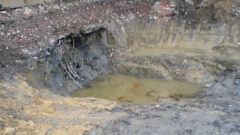
R&D tax credits for SME’s
Starting a new business brings with it a raft of tasks: hiring staff, purchasing equipment and delivering your product or service to a high standard to name but a few. Cash flow is also a concern for startups – how can you generate money while also researching and developing new or improved products? Here’s a brief introduction to SME R&D tax relief, which can help ensure your business can survive.
What is SME R&D tax relief?
Research and development tax relief was created in 2000 to help small and medium enterprises (SMEs) invest in innovative activities, which in turn could stimulate the economy. For the purpose of R&D claims, an SME is defined as a business with under 500 employees and an annual turnover of less than €100 million.
The tax relief rewards businesses that are aiming to solve a specific scientific or technological problem, the resolution of which could have an impact on the industry as a whole. This may be a prototype of an engine using alternative fuel, for example, or a piece of technology that simplifies a manufacturing process.
Claiming R&D tax credits means that start-ups can recoup a significant amount of their expenditure on research and development projects. In monetary terms, for every £100 spent on R&D activity, the taxable profits are reduced by £130 in addition to the money spent. This could potentially clear a corporation tax bill entirely.
What can you claim for?
There are certain qualifying costs that a start-up can claim SME R&D tax credit for. The salaries for employees working on the project, for example, can be claimed for, as well as consumable or transformable materials that are purchased for direct use in the activity. Utility costs and software can also form part of the claim, as can payments made to subjects of clinical trials in relevant instances.
How can you claim?
SME R&D relief can be claimed for on the Corporation Tax returns. After selecting the relevant box (99 or 100) for the size of your business, you can detail expenditure in box 101 and provide the calculation (amount spent x 230%) for the tax due. Documentation that demonstrates why the project is eligible for R&D relief is also required.
The good news for start-ups is that the records to support entries on the CT return should be easy to find, as there’s no need to root through years of records. Neither is it necessary to create new documents – copies of existing ones should suffice.
How complicated is it to claim?
As with any tax or HMRC-related process, the SME R&D claims process can be complex and confusing. As such, it’s advisable to seek help from an R&D tax specialist, who can guide you through the process and help you compile the necessary documentation to support your claim.
R&D Tax Solutions can offer such assistance to businesses in the manufacturing, architecture, marine, software and aviation industries, among others. To find out how we can help you with a claim, contact our office in Manchester on 0161 298 1010 today.





